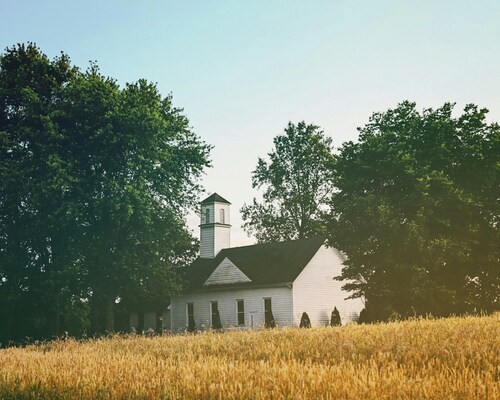Henry Scougal once said, “True religion is a union of the soul with God, a real participation of the divine nature, the very image of God, drawn upon the soul, or, in the apostle’s phrase, it is Christ formed within us. Briefly, I know not how the nature of religion can be more fully expressed, than by calling it a divine life.”
Today I wish to assert that it was the “old-time religion” that compelled the saints to continue in the faith given to them by the Lord.
Alexander Maclaren said, “There are differences plain enough between their (the saints of old) condition and ours (the saints of today); but it is as true for us as ever it was for them, that our safety is in God, and that, if we want to find shelter from impending dangers, we shall be wise to take ourselves to the altar to worship there rather than to make defense for ourselves.”
One of the old hymns says,
Until we reach that land of song
In heaven some sweet day,
I’m going there to stay
Press on, it won’t be very long”
There is no example in history of a society maintaining a moral life without the aid of religion. Despite all the changes about us, we have not moved beyond “the faith once delivered unto the saints.” It is just as relevant now as it was then. Sin is still the curse of humanity. Salvation is still its greatest need. And that’s what the “old-time religion” is all about. It centers around Jesus Christ who is “the same yesterday, today, and forever.” The central glory of the old-time religion is not a great truth nor even a great movement. It is a great person – Jesus Christ himself. Without him, there would be no forgiveness of sin, no deliverance from sin, and no victory over sin. Without him, there would be no Gospel. The world doesn’t need a new religion; it needs a new birth. Only the Christ of the old-time religion can give that.
Some people may say that using language like “religious worship” and “spiritual service” is antiquated and outdated. Perhaps they are not outdated terms, but ignored and overlooked terms. The old-time religion –the worship of the True and the Living God – has been cast aside for a new, self-centered worship. Are people really any better, spiritually speaking, today than they were 6000 years ago after the fall? Have we really evolved past our need for salvation?
God dictates the means for mankind to worship him, not the other way around. As we see in our text today, the people sought to worship God acceptably, with reverence and Godly fear. This is what we find in the words, “according to the words of David, the king of Israel.” The people were not trying to find a new way to worship God. Rather, they were seeking the old, tried, and true way.
Jeremiah’s prophecy to this same group of people reads,
Now, they are recalling the words of the Lord that had been spoken to them many years beforehand. You can believe that, at least for now, they would walk in the old paths.
Old-time religion is not about a style. Years ago, there arose a conflict between the old and the young church, regarding modern worship and traditional style services. The old folks wanted to keep their style, and the young folks wanted their style. But style, as time has proven, is fleeting and cyclical. What was cool in the 70s became out of date in the 80s and 90s. And guess what? In the 2000s, the 70’s came back again!
Style is ever-changing. Old-time religion is not about styles. It is about the substance of our worship. In fact, it would be more correct to say that old-time religion is about the person whom we worship. The fact that the Lord established an outward form of worship in the days of Enoch as early as Genesis 4, and continued to to make it even more clear in the days following, should show us that we should not worship a style. Instead, we worship the Savior who has loved us and given himself to be the propitiation for our sins. Christ is the substance of the shadows in the Old Testament. When we read about the altar being rebuilt and sacrifice taking place in Ezra, we are to understand this to point us to the future redeeming work of our savior on the cross at Calvary.
The people found their identity in their worship. For all of God’s people, true worship must be placed before any other consideration. Men and women of all ranks of society joined in the cause with initial enthusiasm, knowing that it was for this purpose that God had brought them into a relationship with himself. God is seeking worshipers, now just as much as then (John 4:23). He seeks worshipers who put the worship of God before everything else, willing to worship in the way God has set forth in his Word.
This was a big deal. In the book of Ezra, the foundation was laid again. For the first time in seventy years, God’s people were able to have a formal worship service. Both the old and the young together witnessed old-time religion once more. Soli Deo Gloria!






